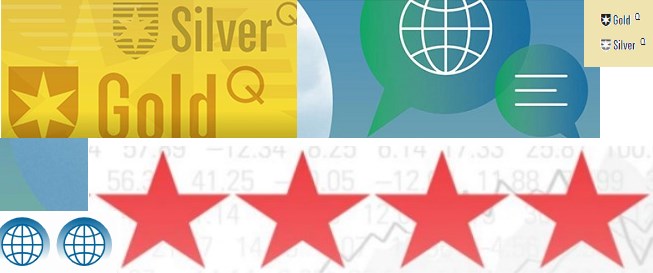
After a downward adjustment to JPMorgan’s A-Share strategy in April, Morningstar’s manager research team downgraded two UBS funds, and one Invesco fund, citing unstable portfolio management teams. Was the ‘People’ pillar an issue specific to individual fund houses, or is there an industry-wide limitation that makes it hard for China equity funds to retain talent?
(Aside: When assigning ratings, apart from evaluating the ability of portfolio managers on investment teams to execute tried-and-tested investment process, our manager research team also gauges those teams’ stability and resources they can access.)
As China’s Asset Management Industry Opens, Talent Becomes Scarce
Claire Liang, senior equity analyst at Morningstar, says China is further opening its asset and wealth management industry and more players are setting their foothold in Shanghai.
“One thing we’ve observed is that with the increasing opening up of China’s onshore markets to international capitals, many overseas asset managers have been beefing up their China equity resources over the past few years to strengthen their research capability in this space,” Liang says.
However, even as competition among money managers for top talents intensifies, Liang believes good parent organizations would have been able to continue to attract outstanding investment professionals. Some firms prove that retaining talent isn’t an impossible task.
“The market is very competitive, but we have also seen some fund houses be able to retain and steadily grow their resources in this space over the past few years,” she adds.
Globally, under Morningstar coverage, there are 12 China equity funds that earn High in people pillar rating. They are either gold or silver medalist. Here’s the list:
Who Outperforms When Markets Fall?
The rating decisions come at a time when Chinese markets were enduring consecutive months of downturns. Liang thinks down markets usually make a good environment that help investors observe how portfolio managers handle risks. “It is also the period to watch if portfolio managers are willing to stick to their philosophy and bets even during adverse times.”
However, she says if the strategy underperforms in a down market, it doesn’t necessarily mean that the active managers are not doing their job, or doing it poorly. She concludes: “Every investment process has an environment in which it tends to outperform and environments in which it may lag, and we pay more attention to if the strategy’s performance pattern is in line with the said process.”
Comments on Rating Changes
The conclusion of the review in May has affected three funds under Morningstar’s manager research coverage: UBS (Lux) Equity Fund China Opportunity, UBS (Lux) Investment SICAV - China A Opportunity, and Invesco Greater China Equity.
Morningstar analysts believe that the UBS team’s competitiveness among its top peers has weakened, mainly due to the people element. While the strategies still benefit from a skilled lead manager and a time-tested investment approach, people moves of the UBS team have caught the analyst’s attention.
According to Liang, the historically stable supporting team of seven has experienced heightened turnover in recent years and lost three more analysts in 2021, which is significant given its already lean size.
Liang explains: “The team’s development has also been slow. It has yet to backfill the departed tech hardware analyst’s headcount, and most of lead manager Bin Shi’s team development plans, such as adding more resources and training the team members to take more portfolio management responsibilities, have not materialized.”
Both strategies’ People Pillar rating is downgraded to Above Average from High. This also led to changes in the Morningstar Analyst Rating.
For UBS (Lux) Equity Fund China Opportunity, the analyst rating for the clean share class Q is downgraded to Bronze from Gold. The vehicle’s other share classes were downgraded from Gold to Silver or Bronze, depending on fees. For UBS (Lux) Investment SICAV - China A Opportunity, the rating for its clean share class Q has been downgraded to Bronze from Silver, while other share classes were downgraded to Bronze from Gold or Silver.
Meanwhile, Invesco Greater China Equity Z USD Acc is downgraded to Neutral from Bronze. Ratings of the people and the process pillars are now Average.
Chloe Qu, manager research analyst at Morningstar, says: “While we continue to value portfolio manager Mike Shiao's experience and investment passion, the high level of team turnover and Shiao’s increased workload lessen our conviction in the investment team.” This comes to a conclusion of downgrading the People rating to Average from Above Average.
“The team instability has also lowered our confidence in the execution of the research-heavy, bottom-up-driven process. Recent changes in the portfolio's characteristics also spark concerns that the manager has drifted from the core principles of his long-term quality focus.” Hence, our analysts have also downgraded the Process rating to Average from Above Average.
As a result, the strategy's Morningstar Analyst Rating was downgraded to Neutral from Bronze across all share classes, including the clean Z share class.












.png)



.jpg)





